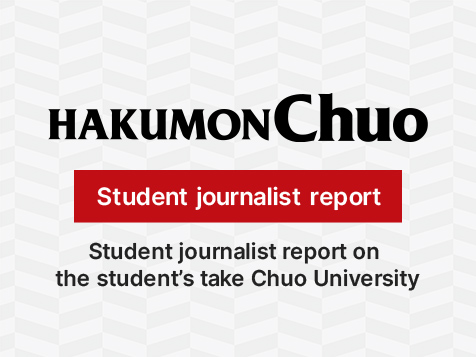Academics
Faculty of Economics
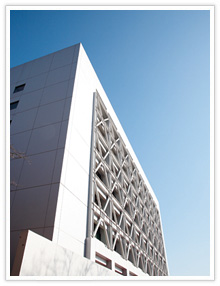
The Faculty of economics consists of four departments: Economics, Economic Systems and Information Analysis, International Economics, and Public and Environmental Economics. Each department aims to provide the students with highly advanced academic education that helps them to take an active part in the rapidly changing situation of the world we live in.
Semester system has been adopted with complete courses given in half terms, making it possible for the students to concentrate on studies more effectively.
Great focus is laid on foreign language education with the aim of meeting the increasing demands of globalization. Thorough training is given in small classes. Japanese language courses are available to international students.
A network of some 140 personal computers is available to students. They can access economic and statistical data at any time.
Lively discussions between the teaching staff and the students are emphasized end encouraged. Introductory seminars are offered from the first year, and specialized seminars from the second through fourth years. Students select from a wide range of seminar courses. There are 50 special seminar rooms provided for the exclusive use of each seminar instructor and his or her students.
Graduates from the Faculty of Economics work in a wide variety of careers including banks, insurance business, the civil service, social work and other industries.
Departments:
Economics
Economic Systems and Information Analysis
International Economics
Public and Environmental Economics
Date of Founding: 1905
Campus: Tama Campus
Number of Students: Undergraduate Student Enrollment
Advanced Professional Educational Program of Managing Public and Private Partnerships towards Vitalization of Communities.
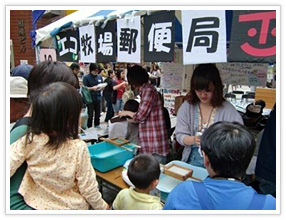
Sustainable local communities management requires well conditioned cooperation and participation of multi-stakeholders. We have developed a comprehensive mechanism to promote cooperation and participation of multi-stakeholders throughout about eight years collaborative practices in some communities. This program provides students with some devises to facilitate the cooperation in experimental field activities.
This program is originally set up by Professor Hiroshige Tanaka and is selected as the good practice in challenging project on innovating reform in high quality method and program of university education by Ministry of Education, Culture, Sports, Science and Technology-Japan.
Practical Knowledge and Skills in the Age of Globalization
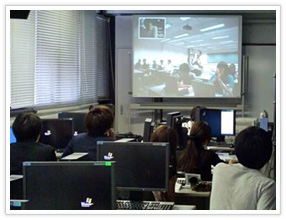
To improve students‘ ability to deal with a wide range of difficult problems in this rapidly changing world, the faculty offers the students a variety of programs which provide them with practical knowledge and skills. The Faculty concluded memorandum of cooperation with School of Digital Media and Infocomm Technology, Singapore Polytechnic. Students can take up modules from state-of-the-art E-Commerce Technology course, and can participate in distant learning to join the discussion with foreign students through videoconference system. Moreover, the Faculty has introduced business internships in local government and private companies. Many students participate in the internships and achieve excellent results.
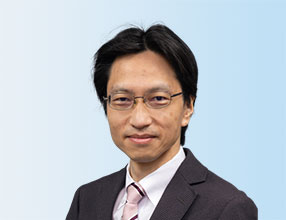
The Faculty of Economics was founded in 1905 and has the second longest history among faculties at Chuo University.
Our faculty offers four departments: Economics, Economic Systems and Information Analysis, International Economics, and Public and Environmental Economics, with an aim to apply Chuo University’s founding spirit -- “Fostering the Ability to Apply Knowledge to Practice” -- to societal changes, and to better address current trends including informatization, globalization, aging population and declining birthrate, power decentralization, and increasing concerns for the global environment.
Economics is an academic field closely tied to society. One of the most important features of the Faculty of Economics is that the students learn from a balance of four different perspectives: “theory” including Marxian Economics, and Macro/Micro Economics; “history” including the history of Japanese and international economies and the discipline of economics itself; “systems” that support actual economic activity; and “policies” to further improve the real world.
In today's complex society, the subjects of foreign languages, health and sports, and general education are necessary for the formation of a solid knowledge base and sound human development. By studying these subjects in a multifaceted and self-directed manner, students can acquire communication skills, logical thinking, a wide range of educational knowledge, and a critical thinking mindset, while at the same time cultivating foresight and the ability to find and resolve problems.
The Faculty of Economics provides education based on three pillars - seminars, global human resource development, and career education - through the efforts of all the faculty members. In particular, seminar education, which is the core of these three pillars, aims to channel students' inquisitive minds to the skills necessary for working professionals. This is done by applying the research of the faculty to the education of the students, and by utilizing the specialized knowledge gained in the seminars in various fields in Japan and abroad. This is the literal embodiment of the university's founding spirit - "Fostering the Ability to Apply Knowledge to Practice" - and the university's message, "Knowledge into Action.
The slogan of the Faculty of Economics is "Experiencing the real thing, becoming the real thing. Creating the future with Chuo Economics.” We want to convey the underlying strength of our faculty to our students, nurturing young people who will create the future, trusted by people and active in every part of society. This is our shared ambition and wish.
I sincerely hope that each and every one of you will grow up to be a citizen with the breadth and depth of knowledge and the critical spirit that will enable you to play an active role in all aspects of society.
Takuya SATO Dean, Faculty of Economics







